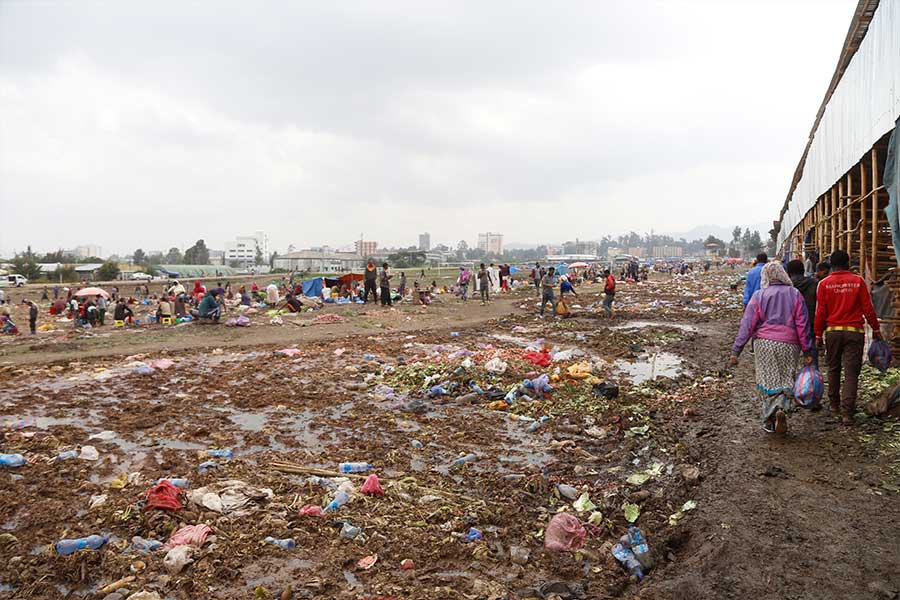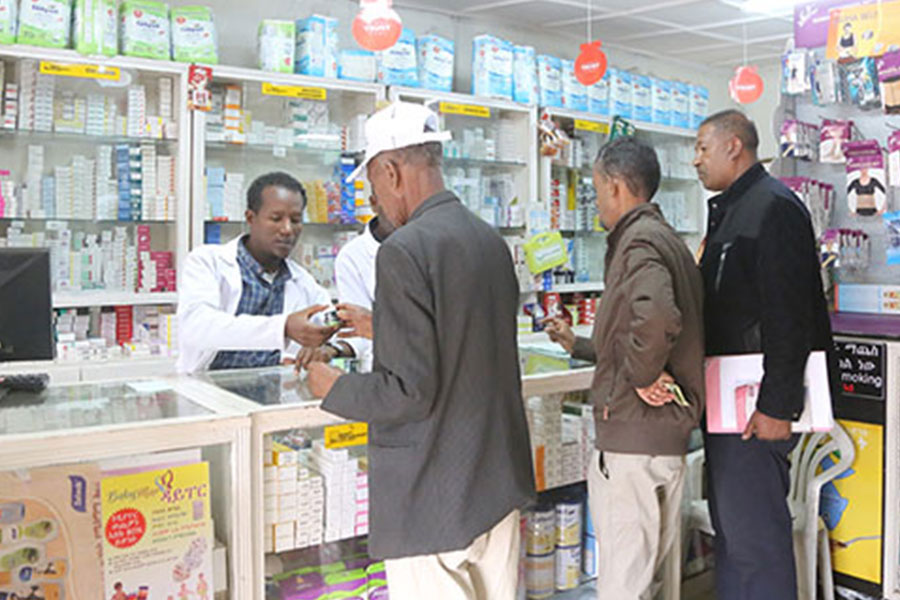
Advertorials | May 30,2025
May 11 , 2019
By NOEL MINWAGAW ( FORTUNE STAFF WRITERS )
TAF Oil Plc, one of 28 oil retail companies, became the Ethiopian Oil Companies Association is fifth member on May 6, 2019.
The company, which joined the market in 2011, operates 72 service stations with 30 more in the pipeline.
The dynamism observed in the market encouraged the company to join the association, according to Hirago Felleke, general manager of TAF Oil.
"Being organised can help us come up with solutions to problems that arise in a constantly changing environment,” Hirago told Fortune.
The volatility of the international market, shortages of supply and illegal practices, like adulteration of the product, are among the challenges the industry faces, according to Hirago.
The Association was formed in August of 2017 with four of the largest players in the Ethiopian petroleum market including NOC, Total, Oil Libya and Yetebaberut Beherawi Petroleum. The four companies hold a 75pc share of the total petroleum market in the country and 92pc of the retail market share in the capital.
Protecting the interest of member companies, hosting interactive forums with several stakeholders in the industry, and creating a better communication in the industry is the primary aim of the Association, according to Girma Tadesse, secretary general of the Association.
"The Association is lobbying for the formation of the Petroleum & Petroleum Products Supply & Distribution Regulatory Authority," he said. “Different institutions were responsible for overseeing different segments of the business, and we called for centralised management."
The Ministry of Trade & Industry is in the process of forming a regulatory authority that will work on ensuring that petroleum and products supply chain are running smoothly and adequately. The Council of Ministers approved the draft proclamation for the establishment of the Authority and is awaiting legislation by parliament.
Currently, there are 28 operational oil companies with two more in the pipeline. These companies receive fuel from the Ethiopian Petroleum Supply Enterprise, which is the single state authority authorised to import refined oil into the country. The Enterprise then sells the product to the oil companies once it reaches the port of Djibouti through the oil companies’ representatives. Once sold, it is the responsibility of the oil companies to transport the fuel from Djibouti and distribute it to end users across the country.
Though the Enterprise is aware of the new association, it has not yet dealt with it as the size of its membership is too small, according to Abayneh Awel, department head at the Enterprise, which spent three billion dollars last year to import 5.2 billion litres of refined oil.
"When the number of its members' increases," said Abayneh, "we'll work with them to avoid the hassle of meeting and dealing with each company."
Non-member companies complain that the formation was not inclusive to everyone in the industry and some were blocked from becoming members.
The largest four oil companies operating in the country made all the decisions without the participation of the smaller companies and then offered the smaller ones to join and accept decisions that were already made, according to Tewodros Yeshiwas, managing director of Gomeju Oil Ethiopia, one of the young companies that joined the market in 2016 and operates 123 fuel stations across the country.
“For instance, there is a by-law that prohibits member companies from hiring workers from any other member company. This is a rule that we disagree with, but we didn’t get a chance to discuss it, because we were not part of the establishment of the Association,” Tewodros told Fortune. “We recognise that our voices will be heard much better if we work together, but we can’t be a part of an association that doesn’t represent our interests."
Hirago of TAF Oil disagrees with this assessment, claiming that it is better to be part of the solution even if there is something they disagree with.
Associations of commercial entities should try to include everyone in their specific industry if they want to have more leverage, according to Getachew Regassa, secretary general of Addis Abeba Chamber of Commerce & Sectoral Associations.
"They should have as many members as possible if they want to make a good impact in their sector," he said.
PUBLISHED ON
May 11,2019 [ VOL
20 , NO
993]

Advertorials | May 30,2025

Fortune News | Apr 10,2021

Fortune News | Feb 15,2020

Agenda | Oct 01,2022

Radar | Jun 27,2020

Radar | Aug 12,2023

Fortune News | Sep 18,2022

Fortune News | Jan 02,2021

Radar | Dec 21,2019

Radar | Aug 03,2025

Dec 22 , 2024 . By TIZITA SHEWAFERAW
Charged with transforming colossal state-owned enterprises into modern and competitiv...

Aug 18 , 2024 . By AKSAH ITALO
Although predictable Yonas Zerihun's job in the ride-hailing service is not immune to...

Jul 28 , 2024 . By TIZITA SHEWAFERAW
Unhabitual, perhaps too many, Samuel Gebreyohannes, 38, used to occasionally enjoy a couple of beers at breakfast. However, he recently swit...

Jul 13 , 2024 . By AKSAH ITALO
Investors who rely on tractors, trucks, and field vehicles for commuting, transporting commodities, and f...

Oct 11 , 2025
Ladislas Farago, a roving Associated Press (AP) correspondent, arrived in Ethiopia in...

Oct 4 , 2025
Eyob Tekalegn (PhD) had been in the Governor's chair for only weeks when, on Septembe...

Sep 27 , 2025
Four years into an experiment with “shock therapy” in education, the national moo...

Sep 20 , 2025
Getachew Reda's return to the national stage was always going to stir attention. Once...